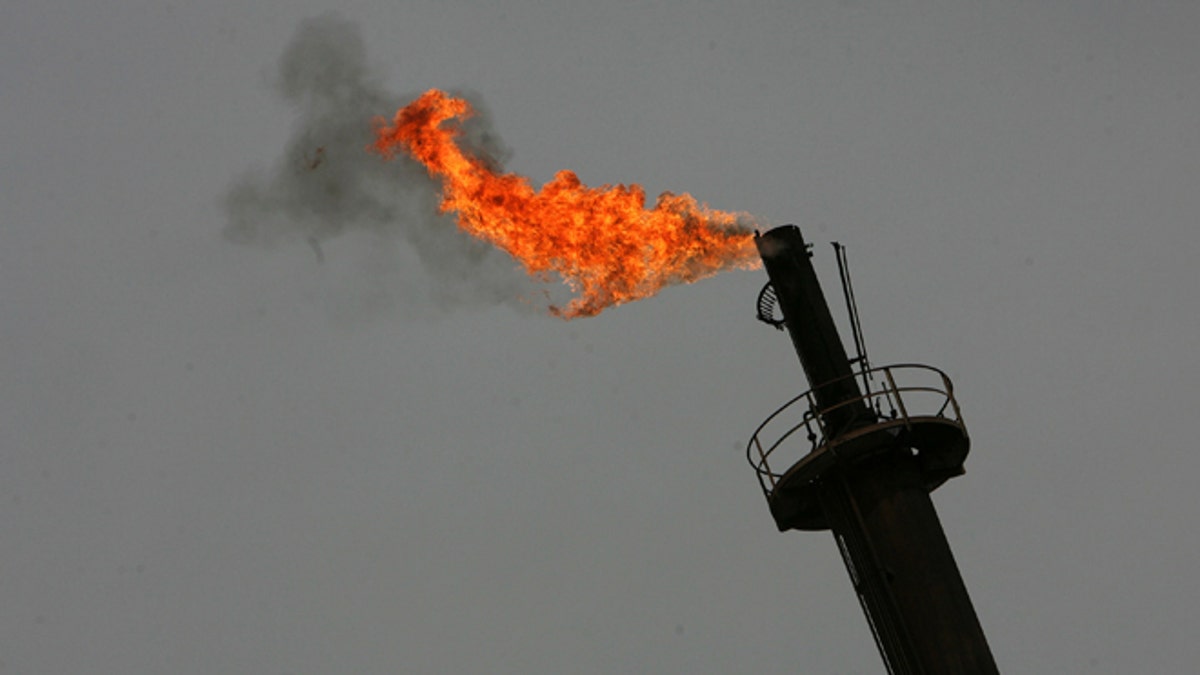
BAGHDAD, IRAQ - NOVEMBER 5: The Daura oil refinery is seen on November 5, 2009 in Baghdad, Iraq. Iraq and a grouping of U.S and European oil companies Exxon Mobil Corp and Royal Dutch Shell PLC signed a $50 billion contract today to develop the West Qurna oilfield, two days after the Iraqi South Oil Company signed a technical service contract with Britain's BP and China's CNPC to develop the Rumaila oilfield. The Iraqi government is trying to attract foreign investment, especially in the oil sector, in hopes of reviving its war-torn economy. Iraq has the third largest oil reserve in the world but it is producing way below its potential. (Photo by Muhannad Fala'ah/Getty Images) (2009 Getty Images)
The recent string of sanctions against Iran by the United States and the European Union has unwittingly given a boost to the Middle Eastern nation’s closest ally in Latin America.
Venezuela has quietly taken advantage of the sanctions against Iran to scoop up some of the market that it has lost in booming Asia, particularly in China and India.
“It is ironic,” Robert McNally, a former White House oil official, told the Financial Times. “But as sanctions drive Iranian oil off the market, it would be unreasonable to expect even Tehran’s friends like Venezuela to forgo opportunities to replace those barrels.”
Over the past two years, Venezuela has expanded its reach in China, the world’s second-largest oil consumer, and India –the fourth largest– to almost 1 million barrels of crude a day.
The Venezuelan rise has come as Iranian oil exports to those countries have plummeted to around 500,000 barrels a day.
Venezuela has the world's largest oil reserves –with estimated 21 billion barrels of oil in reserves in 2011– but production has been falling in the past decade. The government has relied heavily on the country's oil income to fund social programs, and reinvested relatively little of it to exploit new fields and replace depleted ones.
The bump it has received from exporting to Asia has aided the government of Venezuelan President Nicolás Maduro, which has struggled since the days of Hugo Chávez to keep checks on its oil industry. An official for the state run Petróleos de Venezuela (PDVSA) said last year that it has to import fuel and components from the United States in order to fulfill contractual agreements and for consumption.
While the exports to China and India may help alleviate some of Maduro’s worries, it could offset the political ties between Venezuela and Iran sometime in the future.
For now the two nations seem to be on solid terms, with Caracas offering Tehran political and economic support in the wake of the widespread sanctions. This led the U.S. Treasury last month to implement sanctions on the Iranian Venezuelan Bi-National Bank, a financial company originally established as a bilateral joint venture.
Follow us on twitter.com/foxnewslatino
Like us at facebook.com/foxnewslatino







































